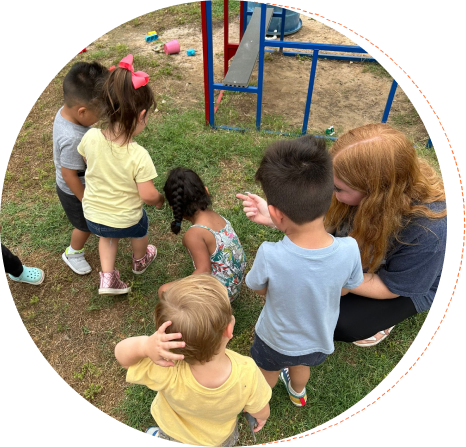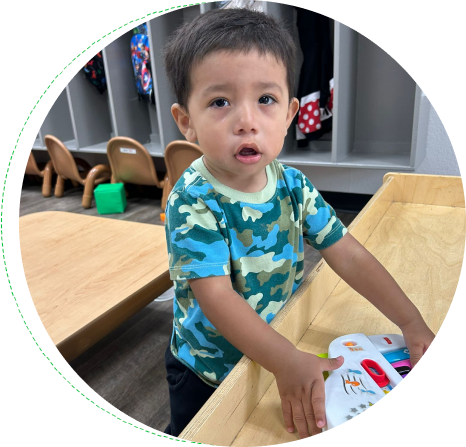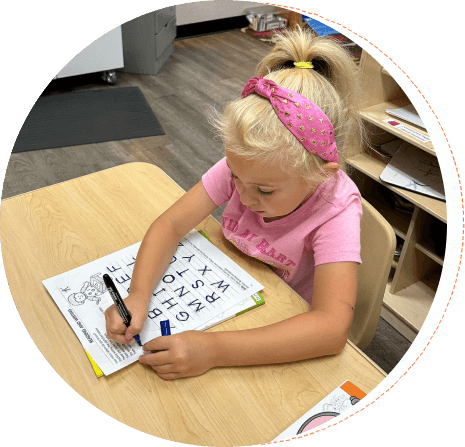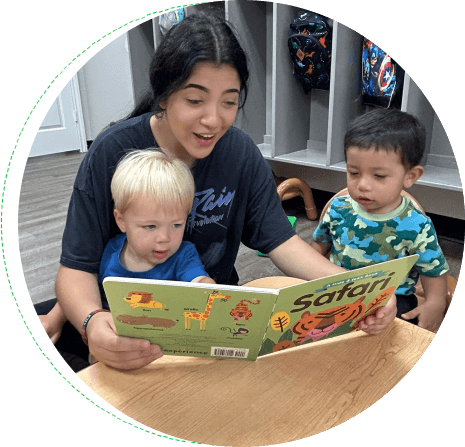Why We’re Different
We offer a specifically planned, stimulating environment which affords children the opportunity to develop foundational habits, attitudes, skills, and ideas necessary for a lifetime of creative thinking and learning.

Outdoor Exploration
Outdoor play is a regular part of the school routine. We encourage active fun with the use of tricycles, climbing structures, balls, and imaginative games.
Our outdoor area is filled with trees, flowers and classroom planter boxes. Children have the opportunity to dig for earthworms and enjoy birds, butterflies and the children’s favorite – rolly polly bugs!

Music and Movement
We feel that music and movement are essential parts of an early childhood curriculum. Children at our school participate in Little Music Maker activities. These activities are research-based and support children’s developing tonality and rhythm. Children learn songs, instrumental play, and movement activities throughout the day.


Artistic Expression
In early childhood, art should emphasize the process, and not the end product. We strive to maintain the joy a child finds in creating something of his or her own. In our school community, children are given the freedom to explore their imagination through a variety of art media.

Love and Logic
Love and Logic is a way of working with children that puts parents and teachers back in control, teaches children to be responsible, and prepares young people to live in the real world, with its many choices and consequences.

